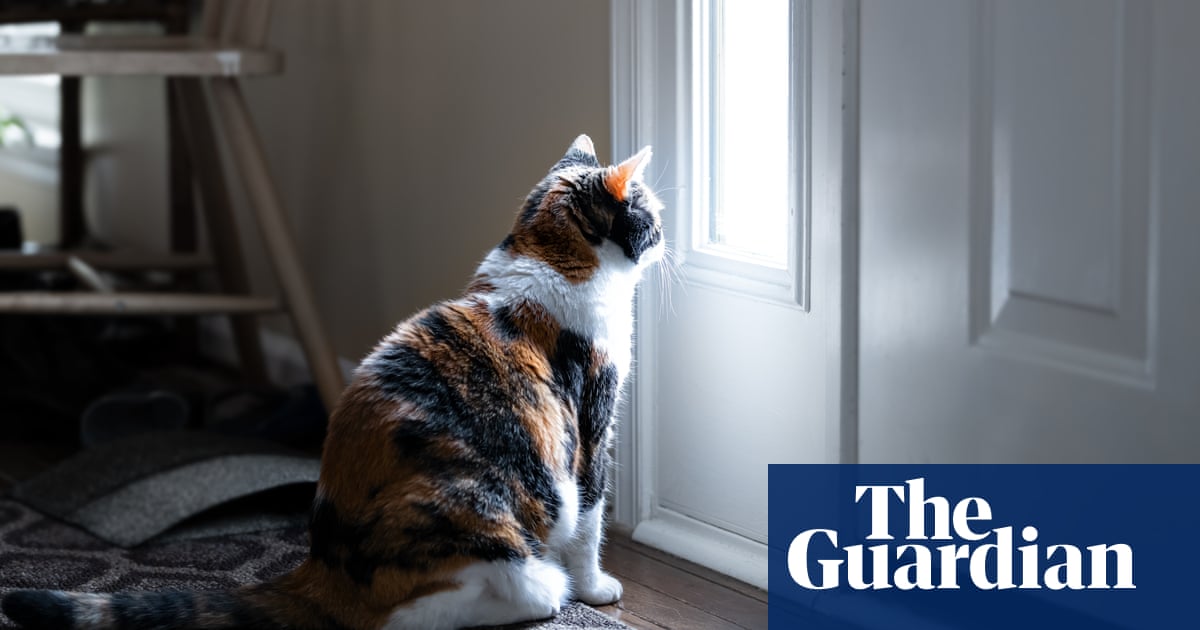“They [cats] engaged less in sleeping, eating and playing but more in seeking attention from humans and other pets, hiding, spending time alone and appearing to look for their lost companions,”
My old cat and dog used to fight constantly. One day we had to put down our dog and the cat howled for days cause his sparring partner was suddenly gone. Whether the cat was lonely or legitimately grieving, I couldn’t say, but the experience certainly was eye-opening.
Same for dogs. When my cat was killed, his dog-sister was in despairing grief for weeks. I’d hear her howling throughout the day, she stopped eating, and barely did anything all day. For the next few months, whenever she would hear/see a cat on tv or smell anything that belonged to the cat, she would get lively and attentive, as if her missing sibling was coming back. It was terrible to witness.
That’s heartbreaking. I’ve got a sick cat and a puppy and the poor guys gonna be wrecked :(
That’s sooo sad. And sweet. Awww…
I just had to split the cats in my divorce. Mine has been yowling in empty rooms and he’s clearly showing signs of depression (not eating as much, sleeping more, etc). My ex’s has apparently been searching the new house for days and gets sad when he can’t find me or my cat. They definitely have a sense of loss and vary in how they cope with it
I don’t know how bitter the divorce has been, but is there any way the cats could move from house to house together? Or would you risk losing them both entirely.
It’s very amicable but we’re also moving a fair distance away from each other. One of them also hates the carrier and screams like a dying banshee, pees all over himself, it’s ugly
The obvious solution is one gets the cats full time and another gets new cats.
Yeah it sounds like they had a bonded pair. As much as it sucks, this is the best option for them.
Oh yeah, I guess you’re doing the best you can.
My vet gave me gabapentin for one of my cats because she gets so stressed out going to the vet. Sadly, she has go regularly because of her issues.
Depends on the cat & its personality I guess.
I had a cat named Gizmo. My wife adopted a cat named Tiny Dinosaur. When Gizmo died, T.D. wasn’t too upset about it. Then I got a new cat named Elmira. When T.D. died, Elmira was pretty sad. She cried and sulked. Then my wife got a new cat named Fluffy. When Elmira died, Fluffy didn’t care.
Hmm maybe my wife just raises cold indifferent cats.
While the results support the idea that cats grieve, an alternative possibility is that owners are projecting their own heartache on to the surviving pet. “Consistent with this hypothesis, caregivers who experienced greater grief were more likely to report increases in their surviving cats’ sleep, spending time alone and hiding following the death,” they wrote.
Glad they wrote this, because it’s exactly what I was thinking as soon as the article stated how they studied the cats.
I adopted two kittens together. One got sick and died under 2yo (similar to cancer). I had to hurry up and get another one sooner than I otherwise would have because the remaining kitty was massively codependent after he’d died. It was clear that she knew (he’d been increasingly sick over a few weeks, so it’s not like just one day he was gone; she saw it happening). You could tell she was pretty upset and we sorta cried together for a week. Luckily, the next kitten that I brought home was a perfect fit, even if I was still heartbroken.
I can’t read any more comments. It is too dusty in here.
I used to have a cat that was raised with a dog and they had a ton of fun together until the dog died. The cat was openly hostile to any dog after that.
This should win depressing study of the year.
Anyone else getting webpage not available?
OP’s link contains a trailing text identifier, which I snipped off.
Fixed, and included an archive link. Thank you.
Appreciated!
Yes. Same here.
Of course they do. Did we really need a study for that?
Your comment reads like a Facebook comment. That’s the whole point of science, don’t trust common sense, prove it.
That’s the whole point of science, don’t trust common sense, prove it.
This has nothing to do with common sense - it’s easily observable behavior that any experienced pet owner could tell you about.
It’s still anecdotal evidence which turns into common sense. You need science and method to validate these things.
It’s still anecdotal evidence which turns into common sense.
You mean how the “anecdotal evidence” that the earth is actually round turned into “common sense?”
Yeah, you’re completely right - none of that shit should be trusted until an overmoneyed dork with a fancy piece of tertiary education institution stationary shows up to prove how stupid we are for doing anything without his approval.
Not sure why you’re getting so acid. I never said you can only believe in scientists, just pointed its usefulness to validate beliefs. Can you show me where I said it?
You seem to have a massive negative bias against “overmoneyed dork” which I assume is scientists, so I don’t think we’re going anywhere here.
And to further your ignorance: Ancient Greeks knew the earth was round and mathematicians helped prove it… so one of the “dorks”.
I just always wonder what we gain scientifically with these kind of studies. Why do we need to prove this? Aren’t there any more important issues these scientists could use their time and money on?
I’m asking in all earnestness. What is the benefit of this knowlege?
There’s been scientific and philosophical debates for a long time about which cognitive traits are specific to humans and which are shared across species, and which trait is specific to each group. This is just another element to add to this debate.
If you’re wondering how this can be applied, it’s not the researcher’s job to know. A lot of the time, a discovery’s practical applications are only found decades after the discovery itself. Some are never used, but we can’t know in advance which knowledge will be useful.
So ideally, those who work in fundamental research needn’t consern themselves with the potential use of their work, they seek knowledge for itself. If there’s useful stuff in there, applied scientists and engineers will pick it up later. Ideally, but unfortunately, researchers may need to convince a patron that their research will be useful if they need private fundings, which can be a problem. Sometimes, they’ll have to put a little bullshit in their pitch for companies. But since this probably wasn’t a very expensive study, maybe public grants were enough. Or maybe they convinced some company that they could use it to promote cat antidepressants.
I don’t know as biology(?) is not my area of expertise. The way I see it it can be valuable for us as a society to be more empathetic? I know you shouldn’t need science for that but hey …
The whole point of science is to study to prove or disprove theories. So yes.
*hypotheses
Evolution is only a THEORY! Like gravity!
I am absolutely pro science. But in all earnestness, what is the use of such a study?
There’s anecdotal “knowledge”, and there is science.
That which is easily observable is not “anecdotal.”
That which is easily observable should be easily to study scientifically.
A lot of people legitimately think cats are loner sociopaths. So yes, some science to back up the cat owners of the world would be appreciated.
So many of those people treat their cat like a lamp though. Of course your cat is a “loner sociopath” - if you barely interact with it and never give it attention or enrichment it’s going to fuck off and do its own thing without you.
Or a bunch try to treat their cat like a dog, which also won’t work.
A lot of people legitimately think cats are loner sociopaths.
That says more about the people who think this than cats.
So you need serious scientists to spend time, resources and money on a scientific study so you can tell cat haters “Gotcha. I told you so!”??
You wouldn’t believe how much good stuff we have because we were finally able to point to a study to shut up haters.
Definitive proof is harder to dismiss than an old wives tale.
While I get your point, “cats have feelings” is hardly on the same level as old wives tales lol














